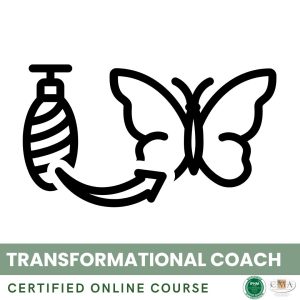Self-confidence and sexual assertion are crucial issues for the fulfillment of LGBTQ+ people. Indeed, in a society still marked by heteronormativity and cisnormativity, it can be challenging to feel legitimate and proud of one’s sexuality when deviating from dominant norms. Internalized negative messages, experiences of rejection or discrimination, and pressure to conform can undermine self-esteem and generate shame, guilt, or anxiety in the sexual sphere.
Yet, self-confidence is essential for experiencing a fulfilled and authentic sexuality. It allows one to feel comfortable with their body, desires, and practices. It gives the courage to explore, experiment, and communicate one’s needs and boundaries. It fosters more satisfying and egalitarian relationships, where one dares to be themselves without trying to perform or impress the other.
Sexual assertion is the ability to express and assume one’s sexual choices positively and assertively. It is being able to say “I am gay, lesbian, bi, pan, queer, trans … and I am proud!”. It is claiming the right to a free and consenting sexuality, beyond moral judgments and normative injunctions. It is about rejecting reductive labels and creating one’s own sexual scripts, in line with one’s values and desires.
To reinforce sexual self-confidence, work on body image is often necessary. Many LGBTQ+ people have a complicated relationship with their body, which can be perceived as non-conforming, inadequate, unattractive according to heterocentric and cis-centric standards. Relearning to love one’s body, to see it as beautiful and desirable in its singularity, is a long but liberating process. It involves exercises in reconnecting with sensations, discovering one’s erogenous zones, benevolent auto-eroticism. Body positivism and fat positivism, prevalent in LGBTQ+ communities, help to deconstruct aesthetic dictates and celebrate body diversity.
Sexual assertion also feeds on community pride and peer solidarity. Frequenting LGBTQ+ friendly places, participating in activist events, surrounding oneself with kind friends who share the same issues strengthens the feeling of legitimacy and belonging. It creates a safe space where one can freely talk about their experiences without fear of being judged, find positive models to identify with, and feel validated in their experience.
An inspiring example of sexual assertion is that of the trans artist Alok Vaid-Menon, who uses the pronoun they. In their book “Beyond the Gender Binary”, they recount: “When I started dressing flamboyantly and femininely, I felt powerful and sexy for the first time. I realized that I didn’t have to choose between being cute or intimidating – I could be both. (…) Asserting my gender liberated my sexuality. I realized that sex didn’t have to be a performance but could be a profound letting go.” This testimony shows how the affirmation of their non-binary gender identity allowed Alok to reclaim their body and pleasure, far from virilist injunctions.
As a coach, one can accompany LGBTQ+ people in this journey towards greater confidence and sexual assertion. It involves helping them deconstruct oppressive internalized messages, question the norms that constrain them, identify their desires, and needs. Self-esteem exercises, assertiveness situations, positive visualizations, and letting-go rituals can be proposed. The aim is to create a caring safe space where the person feels confident to explore their sexuality at their own pace, respecting their limits.
It is important to keep in mind that this process is not linear and can take time. There will be advances and setbacks, doubts, and fears resurfacing. It is essential to welcome each step gently and compassionately, without judgment or pressure. Every small victory, every moment of pride and pleasure is to be celebrated as a step towards a freer and more fulfilling sexuality.
Key takeaways:
– Self-confidence and sexual assertion are essential for the fulfillment of LGBTQ+ people in a society still marked by heteronormativity and cisnormativity.
– Internalized negative messages, experiences of rejection or discrimination can undermine self-esteem and generate shame, guilt, or anxiety in the sexual sphere.
– Self-confidence allows one to feel comfortable with their bodies, desires, practices, and fosters more satisfying and genuine relationships.
– Sexual assertion is the ability to positively and assertively express and assume one’s sexual choices, by refusing reductive labels and creating one’s sexual scripts.
– Work on body image is often necessary, by relearning to love one’s body in its singularity. Body positivism and fat positivism help dismantle dictates.
– Sexual assertion feeds on community pride and peer solidarity, by frequenting LGBTQ+ friendly places and surrounding oneself with friendly people.
– As a coach, one can accompany this journey by helping to deconstruct oppressive messages, identifying desires and needs, in a caring safe space, and without judgment.
– This process takes time and is not linear, it is essential to welcome each step gently and compassionately, celebrating each victory towards a free and fulfilling sexuality.
👉 To download docx (Editable) file click here : Click here
👉 To download PDF file click here : Click here
👉 To download MP3 file click here : Click here







